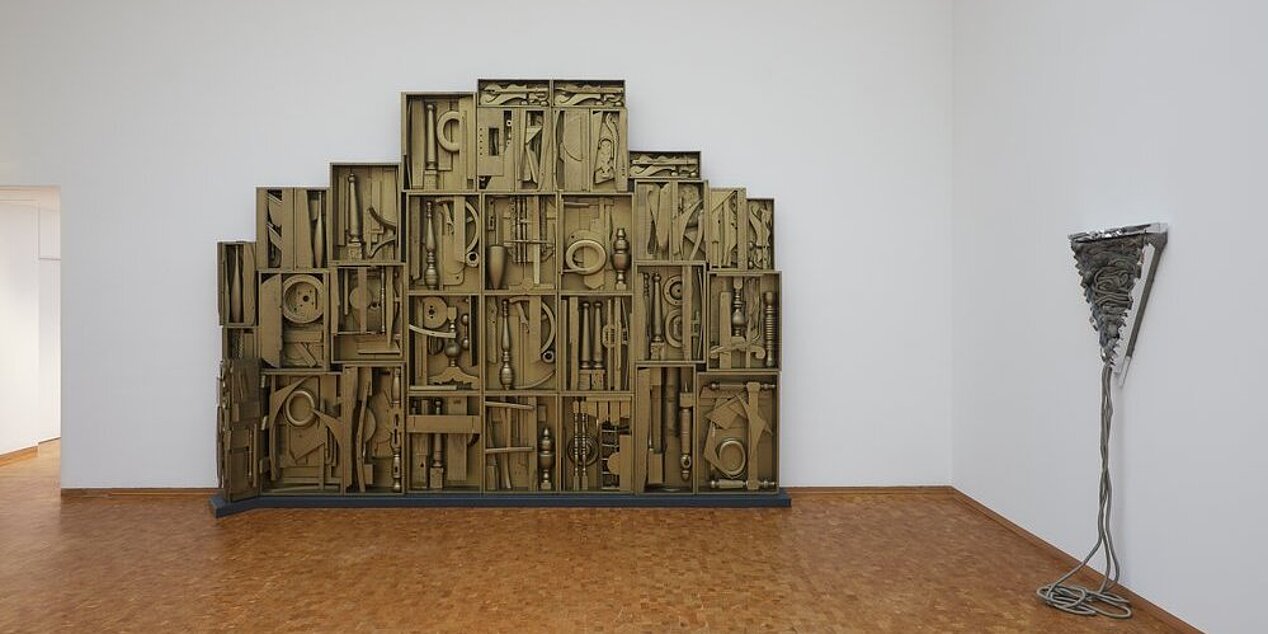ifa: How did your institution do during the crisis and how has it done since then? How has the current situation changed the work of your museum and its conception of itself?
Yilmaz Dziewior: The current situation caused by COVID-19 has a serious impact on the visitors and the work in the Museum Ludwig: the public and the team have to wear masks and maintain their distance. Our exhibition program and the loan system are also not unaffected by the restrictions: courier trips are currently impossible, and we can only admit a certain maximum number of visitors to particularly popular exhibitions.
ifa: How do you address your public under the changed conditions? What kind of public do you expect and what do you expect from your public?
Dziewior: The importance of digital communication in particular has increased under the changed conditions. The Museum Ludwig has extensively expanded this area in recent months. Openings cannot currently take place in the usual framework; instead, recordings are broadcast live on social media and videos are fed into the website. Formats like the 'Long Thursday' are usually marked by the particularly active participation of numerous, especially young, visitors. For these workshops, concerts and discussions, we have implemented in recent months innovative alternatives online or in smaller groups maintaining an appropriate distance in the museum. Fortunately, neither our expectations about the solidarity and consideration of the visitors, nor the hope for continued interest in art and our program were disappointed. On the contrary, we have gained several thousand new followers in the communication channels of social media.
ifa: What do you consider to be the primary social tasks of your museum?
Dziewior: The Museum Ludwig is still committed to its core tasks of collecting, preserving, researching and communicating. In addition, our museum is developing more and more into a permeable place for meeting and exchanging ideas. It sees itself as both socially formed and socially formative.
ifa: How should museums convey and reflect stories, images and narrative patterns?
Dziewior: There is no predefined way for museums to do this. They don't act in a vacuum, but are always specific to their time and mirror a society that is constantly changing. We therefore see it as our task to look at stories and images from the current perspective and, at the same time, with a view to another possible future. Accordingly, we are constantly renegotiating narrative patterns, aesthetics and conventions of viewing under fluid social conditions.
ifa: What concepts do you pursue with regard to accessibility to and participation in your holdings, to knowledge about and interpretations of them?
Dziewior: Accessibility and participation are important premises of our communicative work. It is important to us to make content accessible as easily as possible, without restricting the freedom of reception through simplistic and dualistic categorizations. Most recently we have expanded our educational services, including guided tours for the blind and people with vision loss, and in the most widely spoken national languages besides German, Turkish and Kurdish. A central concern of the Museum Ludwig is 'outreach' and cooperation with local communities, collectives and initiatives. We have already held various joint workshops, lectures and discussions.
ifa: Do you see your museum as a place of political discourse?
Dziewior: Art has never been apolitical, which is why a museum is also a place of political discourse. This discourse is particularly important to both me and our team.
ifa: How can museums today have an international, post-national, and responsible impact?
Dziewior: A very suggestive question! A museum not only acts internationally but is also always anchored in the specific context of a local reality. From my point of view, it is therefore important that the Museum Ludwig is a municipal museum and that it is consciously in exchange with its immediate surroundings and urban society. But our collection and our current purchasing policy are neither purely local nor 'national' nor Eurocentric. The collection, which focuses on American Pop Art, Classical Modernism and Expressionism, Russian avant-garde, Picasso, and the photographic collection and contemporary art from the Rhineland, has expanded in recent years to include works especially by artists from the regions of Africa, Asia and Latin America. And also in our exhibition program, the Museum Ludwig sees its responsibility to act globally as well as a locally.
Dr Yilmaz Dziewior is Director of the Museum Ludwig, Cologne
MuseumsNow
Under the title 'MuseumsNow', ifa asked actors from international museums about their current experiences, challenges and visions – also against the background of the COVID-19 pandemic. The interviews and reports provide an insight into current museum practices and civil society actions of museums worldwide.

